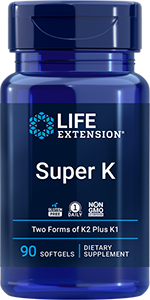
Newsletter
Newsletter
Pilot trial finds BP, metabolic benefit for vitamin D in type 2 diabetics with vitamin D deficiency

September 8, 2020
Findings from a randomized pilot study published on August 17, 2020 in the Journal of Endocrinological Investigation reveal a cardiometabolic benefit in association with 12 months of vitamin D supplementation among type 2 diabetics who suffered from severe vitamin deficiency.
“The aim of our pilot study was to evaluate in poor-controlled non-insulin-treated type 2 diabetic patients with hypovitaminosis D, whether 1-year vitamin D supplementation could have an effect on glycemic control, lipid profile, blood pressure levels and body composition,” authors M. Barale of the University of Turin and colleagues wrote.
The trial included 30 men and women with poorly controlled type 2 diabetes whose vitamin D levels averaged less than 10 nanograms per milliliter. Participants received 500 international units (IU) vitamin D3 per kilogram body weight daily or observation without supplementation for one year. Blood pressure, glucose, lipids, vitamin D, parathyroid hormone and other factors were measured at the beginning of the study and at three, six, nine and twelve months.
Compared to levels obtained at the beginning of the study, fasting glucose was higher after a year among participants who received observation only, while declining significantly at three and six months and by a smaller amount after 12 months among those who received vitamin D. While hemoglobin A1c, a marker of long-term glucose control, was lower in the observation group by the end of the study, the decline was significant in the vitamin D group. Additionally, systolic and diastolic blood pressure, body mass index (BMI), and fat mass index were significantly lower after one year in the vitamin D supplemented group in comparison with measurements obtained at the study’s onset. As anticipated by the researchers, levels of vitamin D and parathyroid hormone normalized in the supplemented group after 12 months.
In their discussion of the findings, the authors remark that vitamin D deficiency is related to insulin resistance and glucose intolerance which may be promoted via various mechanisms including inflammation, down-regulation of peroxisome proliferator activated receptor-delta and increased activity of the renin-angiotensin-aldosterone system. They also speculated that normalization of parathyroid hormone levels may have contributed to the improvement of metabolic and blood pressure values.
They concluded that the observed effects associated with restoring vitamin D to normal levels by supplementation with the vitamin could contribute to a reduction in cardiovascular morbidity and mortality in individuals with type 2 diabetes.
Products
Apply What You've Learned: Vitamin D
- Vitamin D deficiency has been recognized as a pandemic.1 A billion or more of the world‘s people may have low levels of vitamin D.2
- Vitamin D naturally occurs in few foods, hence the fortification of milk with the vitamin.
- Periodic blood testing for serum 25-hydroxyvitamin D is recommended to ascertain vitamin D status and to guide supplementation.
- Despite being known as “the sunshine vitamin,” research has shown that supplements are a more effective source of vitamin D than sunlight exposure to elevate serum vitamin D levels.3 Unprotected sun exposure has an additional disadvantage of increasing the risk of skin cancer.
References
- Holick MF et al. Am J Clin Nutr. 2008Apr;87(4):1080S–1086S.
- Palacios C et al. J Steroid Biochem Mol Biol. 2014 Oct; 144PA: 138–145.
- Moradi S et al. Crit Rev Food Sci Nutr. 2020;60(11):1881-1889.
Featured Life Extension Magazine® Article
Age Reversal
by Dr. George Church
Harvard Medical School Professor of Genetics George Church, who has reversed some of the signs of aging in mice, recently discussed his work on CBS News’ 60 Minutes. Rather than editing genes, Dr. Church has achieved significant effects by increasing the expression of specific genes in older mice, which has resulted in functional improvements.
Rather than healthspan or lifespan extension which, in humans, involves decades, Dr. Church focuses on aging reversal. “With aging reversal, you can see in a few weeks if the therapy is working,” Dr. Church noted.
And instead of impacting certain diseases, Dr. Church believes that therapies that target the causes of aging will impact all of them.
Brain Health Supplement Guide
By answering a few simple questions, we will help you choose the brain health supplements that are right for you.
What's Hot
Health Concern
Higher vitamin D levels, supplementation associated with decreased glucose levels
An article appearing on January 18, 2019 in Menopause, the journal of The North American Menopause Society, reports the findings of researchers at the University of Sao Paulo School of Public Health in Brazil of an association between higher serum vitamin D levels and lower levels of blood glucose in women.
Diabetes and Glucose Control
Diabetes mellitus is characterized by high levels of glucose in the blood. Type 2 diabetes is far more common than type 1 diabetes and is mainly caused by resistance to the effects of the hormone insulin, which facilitates removal of glucose from the blood.
Related Life Extension Magazine® Articles

New Hope for Relief from Diabetic Neuropathy
Diabetic neuropathy is an emerging epidemic of pain, loss of function, and even limb amputation. Seven nutrients demonstrate risk reduction and partial symptomatic respite.

The Importance of Vitamin D Receptors
Nearly every tissue and cell type in your body has receptors for vitamin D, thereby increasing the amounts needed for optimal health. No longer known as just the “bone vitamin”, vitamin D also protects against cancer, heart disease, Alzheimer’s, and diabetes. Knowing your vitamin D levels based on blood testing is one of the most important health investments you can make.
Why Choose Life Extension?
The Science of a Healthier Life®
It all started 40 years ago with something missing: meticulous research and a rigorous, science-based approach to developing premium, clinically studied formulations. When we put supplements into our bodies, we should be confident that they’ll provide the nutritional benefits promised.







